1 / 7
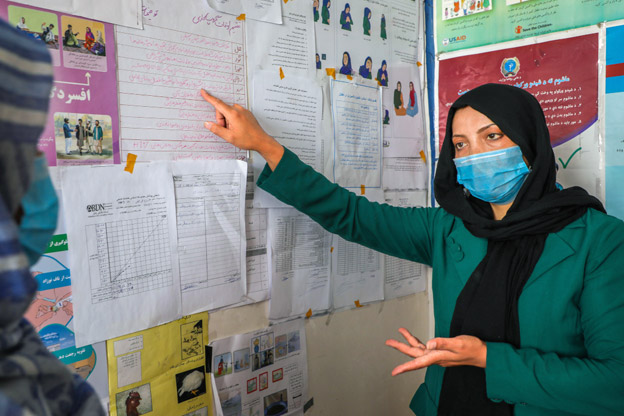
In Afghanistan Mrs Nasrin Ahmadi, a worker in the polio programme, is one of thousands of polio workers who have redirected their efforts to fighting COVID-19 by educating communities to how to protect themselves. “I chose to continue to do public health awareness during the pandemic. I wanted to help save people’s lives and continue to serve my people,” said Mrs Ahmadi.
2 / 7
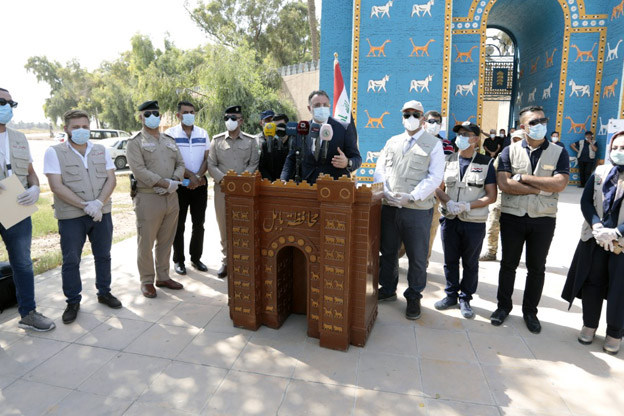
In Iraq, a COVID-19 awareness-raising campaign is ongoing. WHO Representative in Iraq Dr Adham Ismail urges Iraqis to adhere to the advice of health authorities to get COVID-19 under control. Wearing masks at all times and maintaining a safe distance from others are critical measures in limiting transmission of the virus.
3 / 7
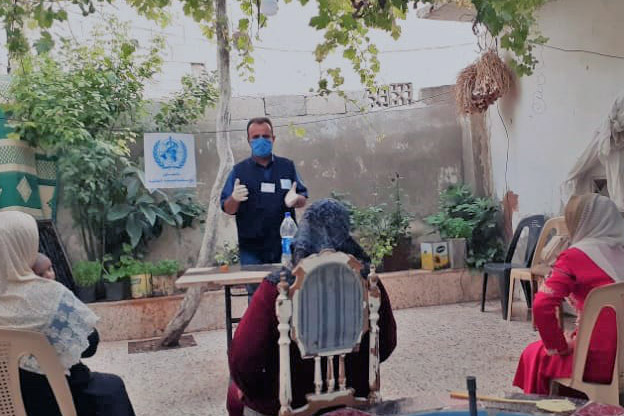
In Syria, humanitarian crisis and conflict are impacting mental health during the COVID-19 pandemic. The WHO country office in Syria has provided 165 000 consultations to patients with mental health conditions through various health partners.
4 / 7
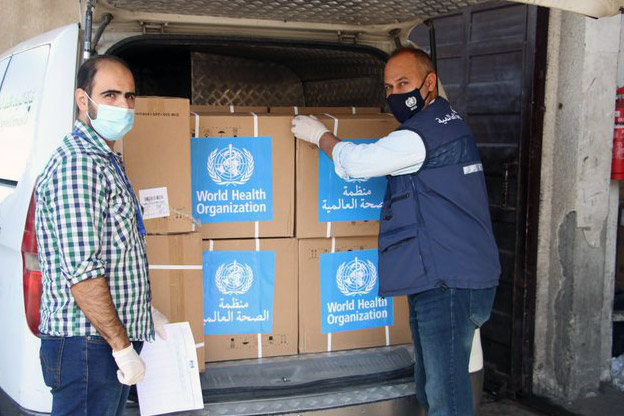
To help address the critical shortage of laboratory supplies for COVID-19 testing in the Gaza Strip, WHO delivered swabs to local health authorities to support testing for 14 000 people.
5 / 7
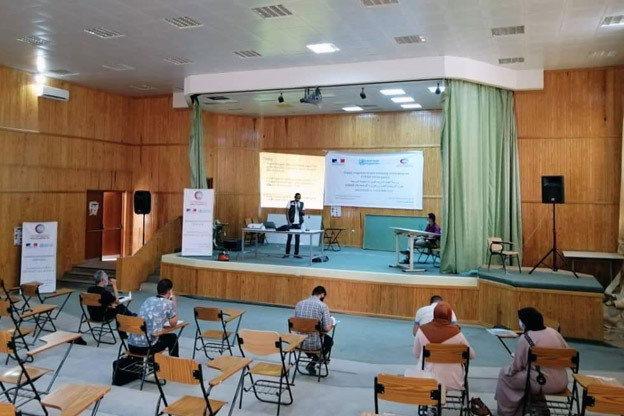
In Libya, with WHO support, a specialized workshop was conducted for rapid response teams in Rigdaleen, Aljmail, Zwara, Al Ajaylat, Ziltun and Al Mishiyah. This is the third of 5 WHO-supported workshops on strengthening COVID-19 surveillance.
6 / 7
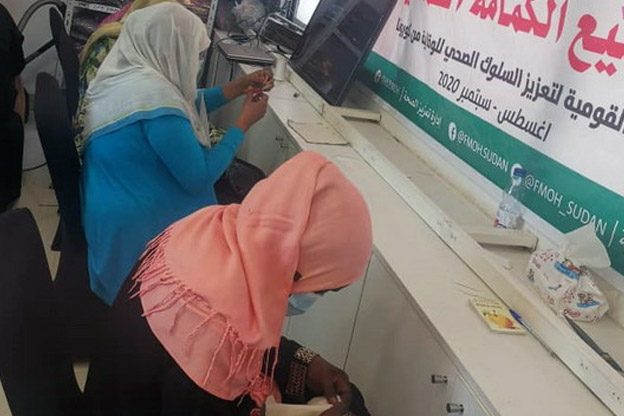
In Sudan, WHO is currently supporting the Federal Ministry of Health to train members of the community, especially women, on the production of good quality fabric masks as a means of protecting people, especially the vulnerable, against COVID-19.
7 / 7
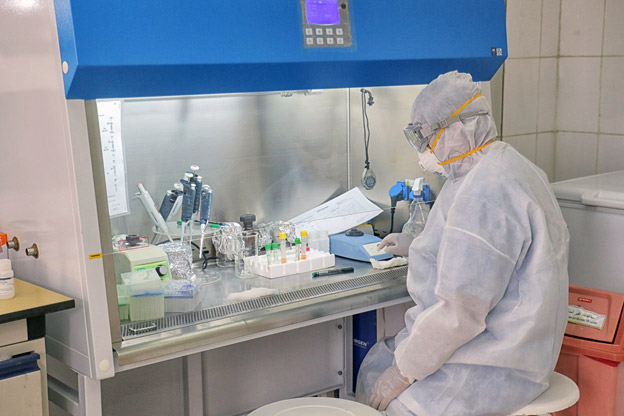
Adequate laboratory testing capacity is a critical component of an effective COVID-19 response. Thanks to a generous contribution from the Republic of Korea, the WHO country office in Yemen will be supporting health authorities to enhance their testing capacities and timely detect COVID-19 cases.




